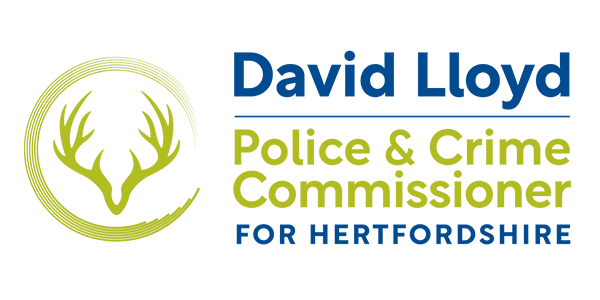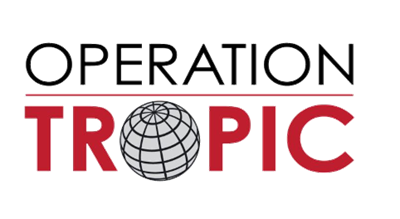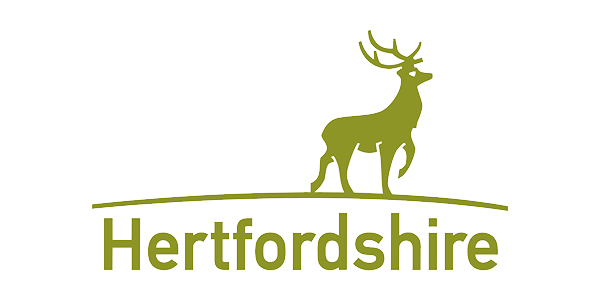Professionals
Cases of people being exploited, forced into modern forms of slavery and trafficked into the UK are on the increase.
Many of these people come into contact with public and private services on a daily basis. it is therefore essential in your professional capacity, that you are able to spot the signs and understand how to report to the appropriate channels so that these highly vulnerable people can receive specialist support.
Modern Slavery Act 2015
The Modern Slavery Act consolidated and simplified existing human trafficking and modern slavery offences into a single act.
Duty to Notify
If a public authority believes someone may be a victim of slavery or human trafficking, they must notify the Home Office.
National Referral Mechanism (NRM)
A UK Government process and system for identifying and supporting victims of human trafficking or modern slavery.
MS1 form
If a potential/identified victim does not consent to the NRM, the public authority must complete an MS1 form.
Identification
There are a number of indicators that may indicate someone is being exploited.
Reporting pathways
These pathways provide guidance on the process of reporting an adult or child victim in Hertfordshire.
Support to Victims
Victims will often have several support needs.
Working with us
Posters, leaflets and business cards to raise awareness of modern slavery / human trafficking amongst customers, residents and clients.
Training
Training is essential for any individuals that are likely to come into contact with people that are being exploited.
About the Hertfordshire Modern Slavery Partnership
Comprised of more than 40 statutory and non-statutory agencies, the purpose of the HMSP is to tackle and prevent modern slavery and human trafficking in Hertfordshire.
Modern Slavery Act 2015
The Modern Slavery Act consolidated and simplified existing human trafficking and modern slavery offences into a single act, receiving Royal Assent on Thursday 26 March 2015.
Take a look at the Modern Slavery Act summary and key definitions (PDF, 81kb) for more information on the provisions introduced under the Act, along with the key definitions for:
- Slavery, servitude and forced or compulsory labour
- Human Trafficking
- Meaning of Exploitation
The Home Office also published statutory guidance on victim identification and support in England and Wales in March 2020.
Duty to Notify
Specific public authorities have a duty to notify the Secretary of State of any person identified in England and Wales as a suspected victim of slavery or human trafficking.
In practice, this means that if a specified public authority has reasonable grounds to believe that a person may be a victim of slavery or human trafficking, they must notify the Home Office.
Since August 2019, the NRM and Duty To Notify (DTN) referral process for first responders has now moved online.
The new process will allow NRM referral or DTN submissions to be made by first responders using a single online form, whether for an adult or child victim. However, an adult must still confirm their verbal consent to enter the NRM.
The new form can be accessed through the following link: https://www.modernslavery.gov.uk/start.
The form can also be filled in offline prior to submission online. This paper form with amendable fields can be accessed here.
**First Responders then still need to complete the online form – the potential victim will not be referred until they do.
In the case of children, consent to the NRM is not required. All children must be referred to the NRM.
If the child being referred is already receiving input from other services, the type of strategy meeting that has taken place must be mentioned (date and which professions were present) prior to referral and the fact that everyone has agreed to this.
National Referral Mechanism (NRM)
The National Referral Mechanism is a framework for identifying victims of human trafficking or modern slavery and ensuring they receive the appropriate support.
To enter the NRM, potential victims of trafficking or modern slavery must first be referred to the UK Single Competent Authority (SCA). (The SCA replaced the previous Competent Authorities on 29 April 2019).
This initial referral will generally be handled by an authorised agency such as a police force, the NCA, the UK Border Force, Home Office Immigration and Visas, Social Services or certain NGO’s. The referring authority is known as the ‘first responder’:
Digital NRM
Since August 2019, the NRM and Duty To Notify (DTN) referral process for first responders has now moved online.
The new process will allow NRM referral or DTN submissions to be made by first responders using a single online form, whether for an adult or child victim.
The new form can be accessed through the following link: https://www.modernslavery.gov.uk/start.
The form can also be filled in offline prior to submission online. This paper form with amendable fields can be accessed here.
**First Responders then still need to complete the online form – the potential victim will not be referred until they do.
Once a form submission is received by the Home Office, each case will be assigned a reference number which will be emailed by return.
Referral to the NRM passes the case to the SCA, who will log the referral and decide the case. Referral to the NRM is voluntary for adults and can happen only if the potential victim verbally consents to the NRM.
Furtner information on this modified process can be found here.
Informed consent is essential to the success of support for a potential/identified victim of modern slavery and human trafficking before and during the NRM process. In the case of children, their consent is not required, but they should still be provided with all relevant information on the process.
Single Competent Authority
The SCA makes 2 decisions during the NRM process:
1) A reasonable grounds decision
- A decision within 5 workings day of referral to the NRM (where possible) on whether someone is a potential victim or not
2) A conclusive grounds decision
- A decision on whether someone is a victim or not
Upon receipt of a positive reasonable grounds decision, the NRM grants a minimum 45-day reflection and recovery period where they can access support. During this time, the SCA also gathers evidence to determine whether they consider someone to in fact be a victim.
Upon receipt of a positive conclusive ground decision, the victim will be granted at least another 45 days of support, amounting to a total of at least 90 days reflection and recovery period, with additional days of support granted based on the needs of the victim in line with evidence provided to the SCA in the recovery needs assessment.
NRM forms should be completed by first responders and emailed to the Single Competent Authority (SCA) at [email protected].
Read more about the National Referral Mechanism
- National referral mechanism guidance: adult (England and Wales)
- Competent Authority guidance (Updated – 29 Apr 2019)
- Privacy information notice: national referral mechanism
What happens if an adult doesn’t consent to the NRM?
The adult will still need to be referred into the NRM through the online portal, but the form option presented will change dependent on the information submitted i.e. no consent from an adult.
**Please Note: Personal details of the victim are not to be included in a NRM online submission, where an adult has not consented to be referred to the NRM.
Furtner information on this process can be found here. Alternatively consult: Guidance on Duty to Notify (specified public authorities).
The new form can be accessed through the following link: https://www.modernslavery.gov.uk/start.
The form can also be filled in offline prior to submission online. This paper form with amendable fields can be accessed here.
**NRM First Responders then still need to complete the online form – the potential victim will not be referred until they do.
Identification
Some signs of exploitation are based on appearance and are physical, whilst others are behavioural, or less obvious to spot. A full list of general indicators in on the Spot the signs page.
There are also indicators for different exploitation types, including:
- children
- domestic servitude
- sexual exploitation
- labour exploitation
- criminal exploitation
See the full list of indicators for specific exploitation types (PDF, 81kb)
Reporting Pathways
The Hertfordshire Modern Slavery Partnership (HMSP) has developed referral pathways and associated documents to help anyone who may come into contact with a potential victim to respond. These documents include:
1. HMSP Adult Victim Referral Pathway – This pathway is to be followed if the potential victim is an adult in line with the HMSP Guidance Document.
2. HSCP Child Victim Referral Pathway – This pathway is to be followed if the potential victims is suspected or known to be a child in line with the HMSP Guidance document. See HSCP Chapter 6.28 Modern Slavery and Human Trafficking for further information.
3. NRM Offline Form (amendable fields) – This referral form is to be used in all cases where modern slavery is suspected. The form adjusts based on the age of the person and whether consent is given. Non-First Responders can fill out this form and then send it to a First Responder to submit online to the Home Office.
4. HMSP Indicator Checklist (for victims) – This flyer, which is translated in multiple languages, allows potential victims to understand their rights, what situations amount to exploitation in the UK, and what support they might be entitled to receive. It asks them to tick the boxes that apply to them. Translated into 12 languages (Please email [email protected] to access this resource), and an easy read version.
5. HMSP NRM Support Booklet (for victims) – This booklet provides information to the potential victim about the NRM and what services they might be entitled to, to help him/her make an informed decision. Translated into 12 languages (Please email [email protected] to access this resource).
6. HMSP Survivor Handbook (for victims) – This handbook provides information to the potential victim about their rights and entitlements, including more detailed information on the NRM and Beacon. Translated into 10 languages (Please email [email protected] to access this resource).
7. Herts specific legal advice document (for victims and practitioners) – This document contains a list of law firms in/around London and Hertfordshire that have experience in trafficking work and/or operate immigration legal aid contracts.
For more information on how to use the pathways and associated documents, please follow the guidelines given in the HMSP Guidance Document (2020-2021).
To support partners in Hertfordshire, the Modern Slavery SPOC Directory (Hertfordshire) is now available. If you would like to access this directory, then please contact the Hertfordshire Safeguarding Adults Board (HSAB).
Children:
- HSCP Procedures – 6.28 Modern Slavery and Human Trafficking
- HSCP Model Child Protection Policy for Voluntary, Community and Faith Groups – Modern Slavery (p.38)
Adults:
- HSAB Procedures – Appendix on Modern Slavery and Human Trafficking (Appendix 17 – p.101)
- HSAB Practice Guidance (Practitioners) – Coming Soon
- HSAB Practice Guidance (Safeguarding Leads) – Coming Soon
Support to Victims
Victims are likely to have support needs linked to at least one of the following areas:
- Accommodation
- Financial support
- Outreach, casework and advocacy
- Access to health and mental health care services
- Social care services
- Access to legal advice
- Access to translation and interpretation services
- Access to community and social recovery services e.g. education and vocational training, drop in services etc.
- Access to criminal justice
For more information, see The Slavery and Trafficking Survivor Care Standards and the HMSP Survivor Handbook.
Legal Advice
Early legal advice is essential to effective support of modern slavery victims. Issues are more likely to be resolved early on, potentially preventing cases ending up in costly litigation and unnecessary trauma.
Each victim of trafficking may need legal advice in several different areas, including the following:
- 1. Immigration
- 2. Compensation
- 3. Welfare
- 4. Housing
- 5. Community Care
- 6. Family
- 7. Public Law
- 8. Criminal Law
- 9. Entering the National Referral Mechanism
- 10. Repatriation and Voluntary Returns
Resources and Services:
ATLEU is a charity, which provides legal representation to victims of trafficking and labour exploitation, helping victims to obtain safety, recovery and redress. They offer numerous services to help practitioners support victims:
- Advice Line: Any practitioner can request for free support via phone (0207 700 7311) or email: [email protected]. (See https://atleu.org.uk/adviceline for further information on what to include in the email)
- Refer victims for legal support: https://atleu.org.uk/referrals
- Subscribe to gain free access to the ATHUB: https://athub.org.uk/
Legal Aid
- To search for a legal aid lawyer: https://find-legal-advice.justice.gov.uk/
- To check if a victim is eligible for legal aid:
- https://civil-eligibility-calculator.justice.gov.uk/
- https://www.gov.uk/check-legal-aid
- https://www.lawsociety.org.uk/for-the-public/help-with-paying-legal-costs/#find
- To check client feedback of a legal firm or lawyer: https://chambers.com/ (Chamber and Partners Directoryof Lawyers)
For more information, refer to the Herts specific legal advice document, which also contains a list of law firms in/around London and Hertfordshire that have experience in trafficking work and/or operate immigration legal aid contracts.
Training and Resources
From April 2017-March 2019, the Hertfordshire Modern Slavery Partnership delivered awareness training on modern slavery and human trafficking to professionals.
Information on external training providers and other resources can be accessed here.
Working with Us
The Hertfordshire Modern Slavery Partnership’s strategy sets out how we’re aiming to protect people from modern slavery and exploitation.
Spread the Word
Feel free to download and share these resources with your colleagues, clients and residents:
Latest Report: HMSP In Focus: Progress Report 2016-March 2020 (Mar 2020)
- HMSP Window Stickers (Jun 2019)
- HMSP Air Fresheners and Matching Sticky Notes (Jun 2019)
- Business card – Hertfordshire Modern Slavery Partnership (PDF, 593kb)
- Information flyer for the general public (PDF, 930kb) (A5)
- Information flyer for taxi drivers (PDF, 933kb) (A5)
- Information flyer for homeless people (A5)
- Information leaflet for people working with the homeless (A5)
- Information leaflet for people affected by cuckooing (Tri-Leaflet)
- Information leaflet for residents to identify cuckooing (A5)
- Business guidance (PDF, – Writing a Good Modern Slavery Statement (Oct 2018)
- Spot the signs (PDF, 87kb) (Apr 2019)
- Hertfordshire Public Health Evidence and Intelligence Unit (Dec 2018): Modern Slavery Strategic Needs Assessment
- Hertfordshire Crime and Disorder Partnership 2018 – Modern Slavery and Human Trafficking (6 Dec 2018): Report of the Topic Group






